
Lucky Philip Dube was a South African reggae musician and Rastafarian. His record sales across the world earned him the Best Selling African Musician prize at the 1996 World Music Awards. In his lyrics, Dube discussed issues affecting South Africans and Africans in general to a global audience. He recorded 22 albums in a 25-year period and was Africa's best-selling reggae artist of all time. Dube was murdered in the Johannesburg suburb of Rosettenville on the evening of 18 October 2007.
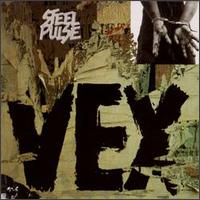
Vex is an album by the English reggae band Steel Pulse, released in 1994. The band added dancehall sounds to its traditional reggae. The band promoted the album with a North American tour.
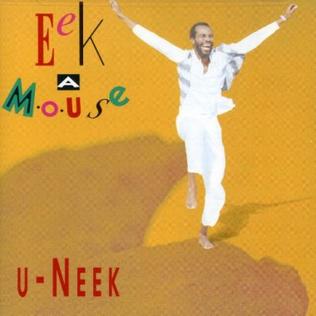
U-Neek is an album by the Jamaican reggae artist Eek-A-Mouse, released in 1991. He supported the album with a North American tour. "You're the Only One I Need" was released as a single.
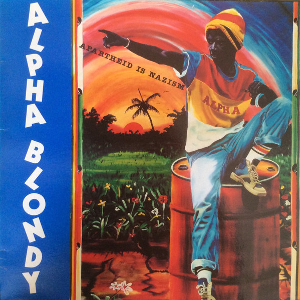
Apartheid Is Nazism is an album by the Ivorian musician Alpha Blondy. The title track was a hit; the album, as an import, was a success in the United States prior to its Shanachie release. Blondy supported the album with a North American tour.

The Prophets is an album by the Ivorian musician Alpha Blondy, released in 1989. He is credited with his band, the Solar System. Blondy sang in French, Dioula, Arabic, and English.

Knock Dem Dead is an album by the Montserratian soca musician Arrow, released in 1988. It was Arrow's first album to be widely distributed in the United States. The song "Groove Master" appears on the soundtracks to Casual Sex? and The Mighty Quinn.

Toots in Memphis is an album by the Jamaican reggae musician Toots Hibbert. Released in 1988, Toots in Memphis was recorded without the Maytals. The majority of the album's tracks are covers of American R&B songs.

Hanging Fire is an album by the Jamaican reggae musician Jimmy Cliff, released in 1988. It was a commercial disappointment.

Spirit of Love is an album by the Nigerian musician Majek Fashek. It was released in 1991. Fashek was credited with the Prisoners of Conscience.
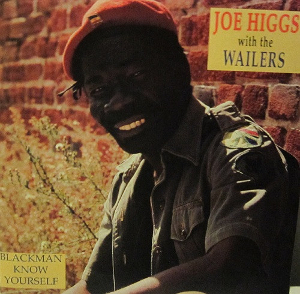
Blackman Know Yourself is an album by the Jamaican musician Joe Higgs, released in 1990. He is credited with the Wailers Band.
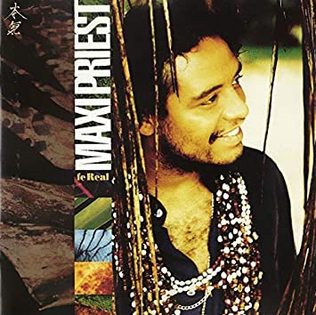
Fe Real, stylized as fe Real, is the fifth studio album by the English reggae vocalist Maxi Priest, released in 1992. It was nominated for a Grammy Award, in the "Best Reggae Album" category. The title character of Terry McMillan's novel How Stella Got Her Groove Back listens to the album while on vacation in Jamaica.

On the Rock is an album by the Jamaican vocal trio Israel Vibration, released in 1995. It was nominated for a National Association of Independent Record Distributors Award. The trio promoted the album with a North American tour. Its singles were "Sugar Me" and "Rudeboy Shufflin".

There's Room for Us All is the second album by the American musician Terrance Simien, released in 1993. It was recorded with Simien's band, the Mallet Playboys. Simien supported the album with a North American tour.

Look at Love is an album by the Jamaican musician Judy Mowatt, released in 1991. Mowatt supported the album with a North American tour.

Barrington is an album by the Jamaican musician Barrington Levy, released in 1993. It was regarded as a crossover attempt. The first single was "Murder". Levy supported the album with a North American tour.

Burning Questions is an album by the English musician Graham Parker, released in 1992. It was his only album for Capitol Records. Backed by his band, the Small Clubs, Parker supported the album with a North American tour.

Surrender to Jonathan! is an album by the American musician Jonathan Richman, released in 1996. Richman was the first musician signed to Neil Young's Vapor Records. Richman supported the album by touring with a full band.

Sidewalk University is an album by the musician Shinehead. It was released in 1992 via Elektra Records. Shinehead supported the album with the "Sidewalk University Tour", which included Worl-A-Girl among its supporting acts. He also participated in Reggae Sunsplash 1993, his third time and his first as the headliner.
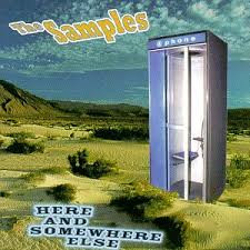
Here and Somewhere Else is an album by the American band the Samples, released in 1998. It marked a return to What Are Records?, following 1996's MCA Records-released Outpost. The band supported the album with a North American tour that included shows with Ziggy Marley and the Melody Makers. Several of the album's songs were marketed to adult album alternative radio stations.

Annunciation is an album by the American band the Subdudes, released in 1994. The album title refers to Annunciation Street, in New Orleans; the album was originally intended to be released on Annunciation Day. Annunciation was the band's first album for High Street Records. The Subdudes supported the album with a North American tour. Annunciation sold more than 120,000 copies in its first eight months of release.




















